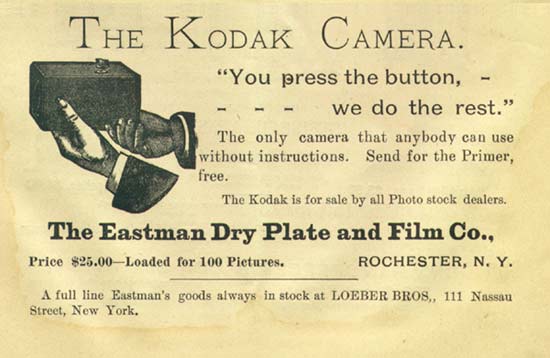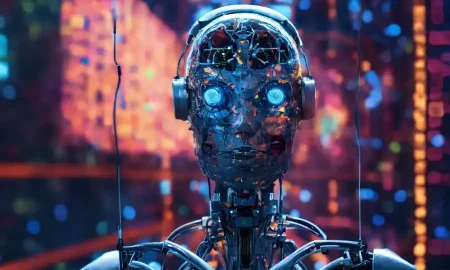Much like Kodak, Xerox, and Nokia before, four big tech companies missed the biggest opportunity of this decade: AI. Now, they are struggling to catch up, writes Satyen K. Bordoloi.
Not many know that Kodak invented the digital camera, or that Xerox invented the GUI, Ethernet, mouse, and PC among many other things that are the backbone of our digital lives. But they became so big, that they got comfortable with what they had, and this myopia took them to the brink of extinction.

When we talk of AI, we already have four aspirants who almost made it to the obsolete/extinct companies list: Apple, Amazon, Facebook, and Microsoft. These companies are crucial to our digital lives in the new millennium. Hence, it is doubly strange to realize that they never saw the AI tsunami coming and are struggling to catch up.
We have a look at each to figure out what they did wrong and how they’re trying to correct that.
APPLE:

To realize how badly Apple messed up their AI opportunity, you just have to consider the simple fact that the very idea for the Transformers technology that gave birth to generative AI and the explosion of AI uses and applications that have transformed our world in the last seven and a half years, came about because Google feared Apple would steal a march on them. That’s because Steve Jobs acquired the voice assistant Siri and wanted it to become an actual assistant to humans.
Google realized that this would mean the creation of AI the likes of which they did not have at that moment. So, they pumped money into various ideas for AI, and on June 12, 2017, a paper written by Google researchers outlined a new way to do AI that they called Transformers (‘T’ in ChatGPT stands for Transformers) and it changed everything (read it here).
But Google need not have worried as Apple, post the death of their founder Steve Jobs – who died a day after the announcement of Siri, lost the opportunity and it was others who took over the AI mantle. I have often written about how Apple might have led the AI revolution under Jobs.
Apple has not done badly. Quite the contrary. But it is no longer the visionary company it has been in other fields and its dominance is mostly due to leveraging what it had done in the past, rather than creating something earth-shattering that Apple was known for while Jobs was alive.
Apple should have led the AI revolution. It floundered so badly, that now it has to rely on others’ help. They tied up with ChatGPT to cheekily call AI – Apple Intelligence. It isn’t as unique as the marketing gimmick would have us believe. But because it is Apple, they have pockets deep enough and a museum full of innovation to, who knows, turn the tide and once again emerge victorious with AI.
AMAZON:

Though reams have been written about Amazon’s style and tech leadership, the truth is, when it comes to AI, they have been anything but revolutionary. Indeed, it won’t be wrong to say that Amazon has had senior-citizen moments on multiple occasions. Take quick delivery. They invented and taught others how to do one-day delivery. Everyone copied it. Then, they stopped. They famously missed the innovation bus with quicker-than-a-day delivery and others built a market that now threatens Amazon’s dominance.
But their biggest mistake was with AI. As I wrote in another Sify article, while everyone rushed to launch AI chatbots, Amazon – despite having one of the world’s first voice bots in Alexa, played the waiting game. As if launching Alexa without empowering its capabilities over the years with AI wasn’t stupid enough, they powered the world’s AI gold rush via Amazon Web Services and minted money, without participating in the gold rush themselves.
They could have headed the Xerox way where what you do stays necessary thus prolonging your life, but you are no longer leading or radically transforming the tech zeitgeist. But with Rufus and Metis along with some other steps, Amazon is desperately trying to catch up.

MICROSOFT:
Microsoft CEO Satya Nadella played smart-alecky and sent out pointed digs towards his Indian compatriot Sundar Pichai when ChatGPT – which they had funded, emerged as a giant killer. Truth, though, is that Microsoft is one of the strong contenders to be this millennium’s Kodak. Like Xerox, their name still rests on legacy products like Windows. Though their cloud-based Azure services, like AWS, are making them their fortune, the same argument we used for Amazon, that they are helping others in the gold rush without participating in it, also applies to Microsoft.
Take the software I am writing this on – Microsoft Word. 100 things could be improved on it using AI, the lowest-hanging fruit is what Grammarly is doing. But the tech-behemoth known as a poor cousin of Apple’s operating system with glitches galore is refusing to mend its ways and sprint at least its existing products using AI if it can’t create anything new.
Luckily, the OpenAI bid paid off. That has given Microsoft a foot into the hallowed halls of AI greatness. But, with the kind of wealth they have, they could do much more.

META:
In the old AI kingdom, Facebook was king. Their work on the use of AI in social media recommendation systems was contentious and continues to be problematic as it rewards content engagement, which is more on divisive content over the quality of it. Yet, one cannot deny they were revolutionary and changed the social media game. However, like Xerox, they missed out on the future potential of artificial intelligence and became one of the biggest to miss the AI bus.
Not only did they miss the initial opportunity, they pivoted in the opposite direction. In 2021, they hinged all their bets on the Metaverse, even changing their name to reflect their new priority. The Metaverse turned out to be a paper tiger as the company struggled to recover money.
This might not have been too bad as in an attempt to make up the deficit with AI, Meta went the open-source route. Though it is not talked about in the same breath as ChatGPT, Meta’s AI push gives competition to the best and could yet pull out the company from the ignominy of a ‘has-been’.
THE NEXT REVOLUTION:
The AI revolution is underway and will seep into every little thing we do by the end of the decade. It will gather its own pace and the companies who rise – new ones like OpenAI or old warhorses playing catch-up – will have only to maintain their successes like a Xerox or Kodak did. However, by then, a newer technology will emerge that will cause the same amount of upheaval and upset the apple cart once again. That tech is quantum computing.
Whether a decade from now, we’ll be writing a similar article about the same companies, only this time concerning quantum computing, only time will tell. However, what remains true is that no company, no matter how big or rich, can ever rest on its laurels. It’s a race, and whether you’re a newbie cheetah or a battle-hardened but bloated elephant – you will have to keep pace, to not go the Xerox, Kodak, or Nokia way.
In case you missed:
- OpenAI, Google, Microsoft: Why are AI Giants Suddenly Giving India Free AI Subscriptions?
- The AI Prophecies: How Page, Musk, Bezos, Pichai, Huang Predicted 2025 – But Didn’t See It Like AI Is Today
- Why is OpenAI Getting into Chip Production? The Inside Scoop
- When AI Meets Metal: How the Marriage of AI & Robotics Will Change the World
- Beyond the Hype: The Spectacular, Stumbling Evolution of Digital Eyewear
- AI Browser or Trojan Horse: A Deep-Dive Into the New Browser Wars
- Why the Alleged, Upcoming AI Crash Is Never Going To Happen
- Great quantum poker: Who’s bluffing, and who is holding the aces?
- Forget Smart Homes – Welcome to Your ‘Feeling’ Home
- Microsoft’s Quantum Chip Majorana 1: Marketing Hype or Leap Forward?










